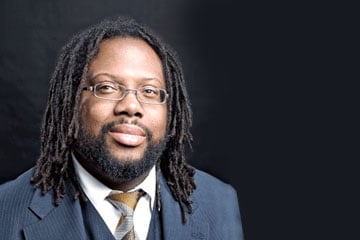The Law Society of Upper Canada has settled a dispute with a black lawyer who alleged a security guard racially profiled him.

The Law Society of Upper Canada has settled a dispute with a black lawyer who alleged a security guard racially profiled him.
Selwyn Pieters submitted a complaint to the Human Rights Tribunal of Ontario last year after claiming he was stereotyped by a guard working at the door to the law society. The hearing into the matter was set to begin Tuesday morning, but Pieters and the law society reached a settlement Monday evening.
“The parties have decided that it would be in everyone’s interest to resolve this dispute amicably,” the law society and Pieters said in a joint statement.
In his complaint, Pieters had claimed that a security guard had stopped him as he tried to enter the law society in July 2016 wearing shorts and a T-shirt.
When Pieters presented his identification card, which was expired, he claimed the security guard grabbed it and denied him access. Pieters then went across the hall to obtain a renewed card in order to enter.
The lawyer claimed that there were a number of white members who entered immediately before him, facing no scrutiny, and that he was treated differently because of race.
The law society had denied the allegations.
Pieters sought $75,000 in damages and requested the tribunal order the law society to provide further anti-black racism training to its staff.
The lawyer says he expects the LSUC’s security staff will now treat members and the public with dignity and respect when they enter the building.
“People should be treated with respect, regardless of how they look,” Pieters said outside the HRTO Tuesday morning.
“Whether I’m in shorts or whether I’m in a suit, I’m a lawyer.”
In the joint statement, the law society and Pieters blamed the dispute on a “lack of information about entrance procedures at the law society’s premises as well as the role that licensee identification cards play in those procedures.”
Bill Anderson, a lawyer representing the law society, said the first step the law society will take will be to reach out to lawyers to let them know what the protocols are concerning entering the building and identification.
The law society has said it will develop better communications about its entrance protocol by sending out notices directly to lawyers and providing more information online.
Anderson said the law society has not admitted any racial discrimination took place.
The LSUC also pointed to the initiatives it is adopting as part of a report it released that identified the barriers faced by racialized lawyers.
“The law society respects Mr. Pieters’ efforts to bring public attention to the issues of anti-black racism and racial profiling,” the statement said.
“The law society recognizes that the challenges identified in its report are long-standing and it is committed to work of accelerating change.”
The story was edited to clarify that a settlement does not necessarily indicate the withdrawal of allegations.










